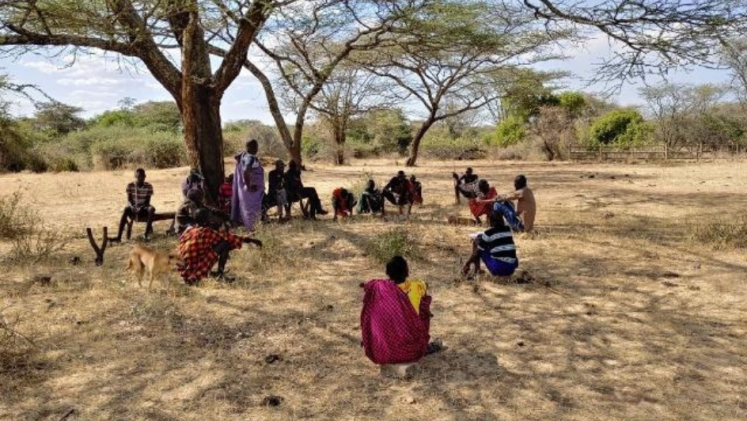Climate change impacts are changing patterns of human mobility worldwide and researchers and policy makers are increasingly aware of this connection. However, the relationship between the impacts of climate change and human mobility is complex. There are different types of climate-related (im-)mobility, like migration, displacement, planned relocation and trapped populations, each with different implications regarding policy responses and impacts on the lives of the affected people.
A new, freely available e-learning course, jointly developed by UNU-EHS, UNU-VIE and the Deutsche Gesellschaft für Internationale Zusammenarbeit (GIZ) GmbH, will provide learners with a profound understanding of human mobility in the context of climate change.
The impacts of climate change are already visible throughout the world. Extreme weather events are becoming more intense and frequent across the globe and gradual environmental changes are placing people’s lives and livelihoods at risk. Rising sea levels, falling groundwater levels, flooding and other climate-related hazards can even force people to leave their homes. However, as the e-learning course demonstrates, regions or communities facing the impacts of climate change can reduce the risk of displacement by investing in adaptation and disaster risk reduction.
“It is important to realize that human mobility is a normal phenomenon, it is part of the human experience” says Dr. Kees van der Geest, head of the ‘Environment and Migration: Interactions and Choices’ (EMIC) Division at UNU-EHS and co-developer of the e-learning course. “We need to look at how climate change influences human mobility, and not think of it as something that is created by climate change alone. Through building knowledge, we want to maximise the chance that future human mobility can have more adaptive outcomes for those moving, as well as for sending and receiving communities.”
The self-paced course consists of an introduction, nine thematic modules and a closing module. It takes approximately 45 minutes to complete each module. The e-learning course includes a diverse set of interactive elements that stimulate learners’ engagement in the course through short videos, animations, interactive graphics, personal stories and quizzes to test the learners’ progress.
“It is really important to engage participants as well as we can, which is why we integrated animations as well as interactive elements into the e-learning course” says Dr. Erick Tambo Head of Pan African Cooperation and Educational Technologies at UNU-ViE and co-developer of the course.
Felix Ries, Advisor in the GIZ Global Programme Human Mobility in the Context of Climate Change adds: "We are happy that this course combines the extensive experience of UNU and GIZ's experiences in the implementation of development and climate projects. The course features learnings from our work in a variety of partner regions of GIZ's Global Programme on Human Mobility in the Context of Climate Change. We are sure, that policy makers, practitioners and students will find this useful for their work. Human mobility can only be a successful adaptation strategy if we create favourable conditions - building knowledge through this course is one step in this direction."
More information and the e-learning course are available here.

